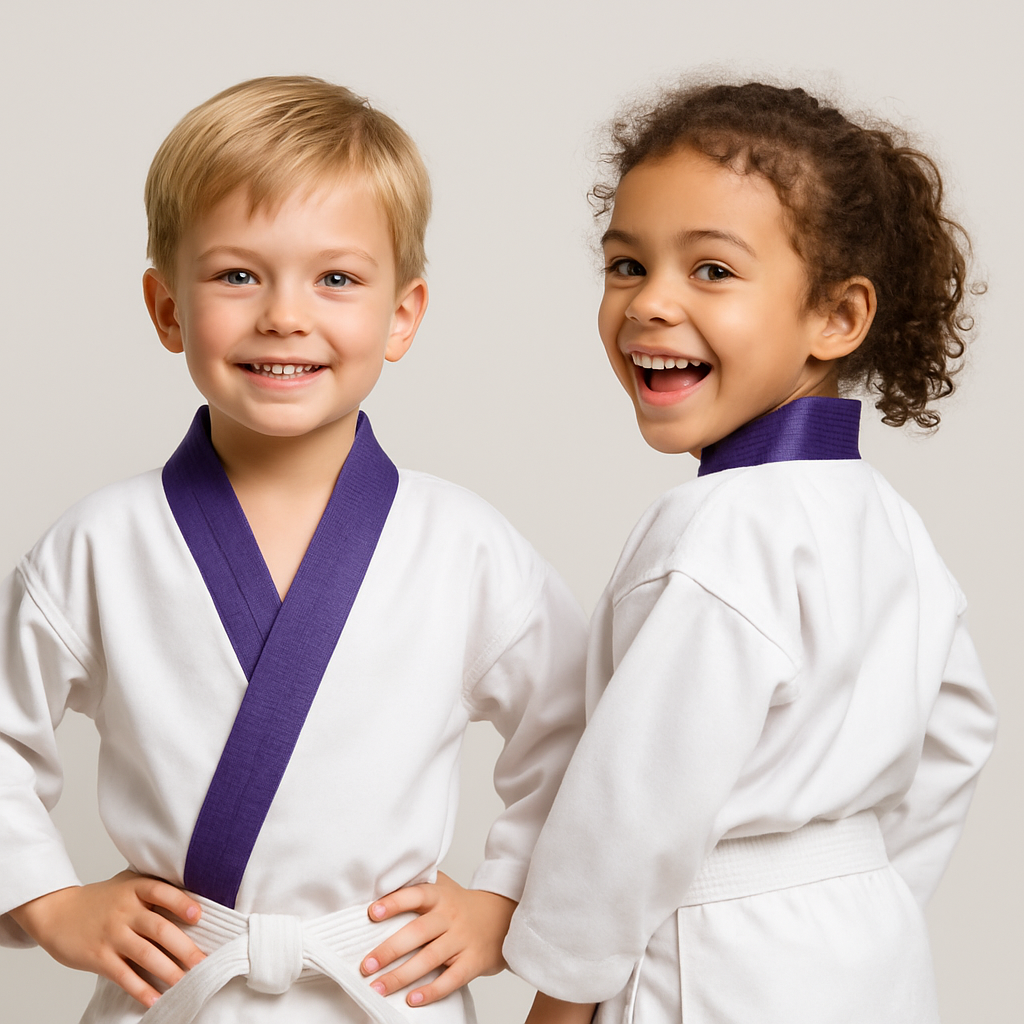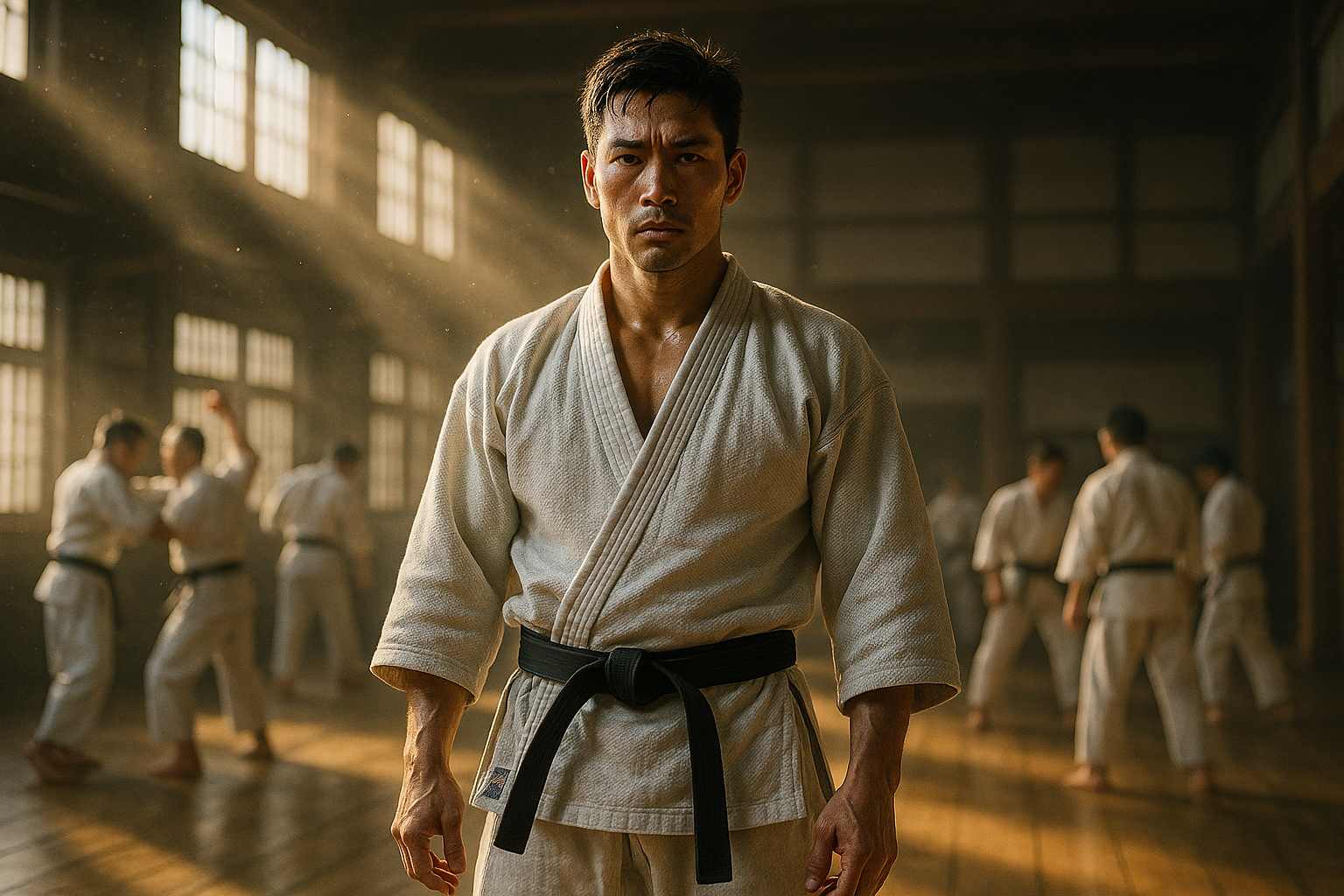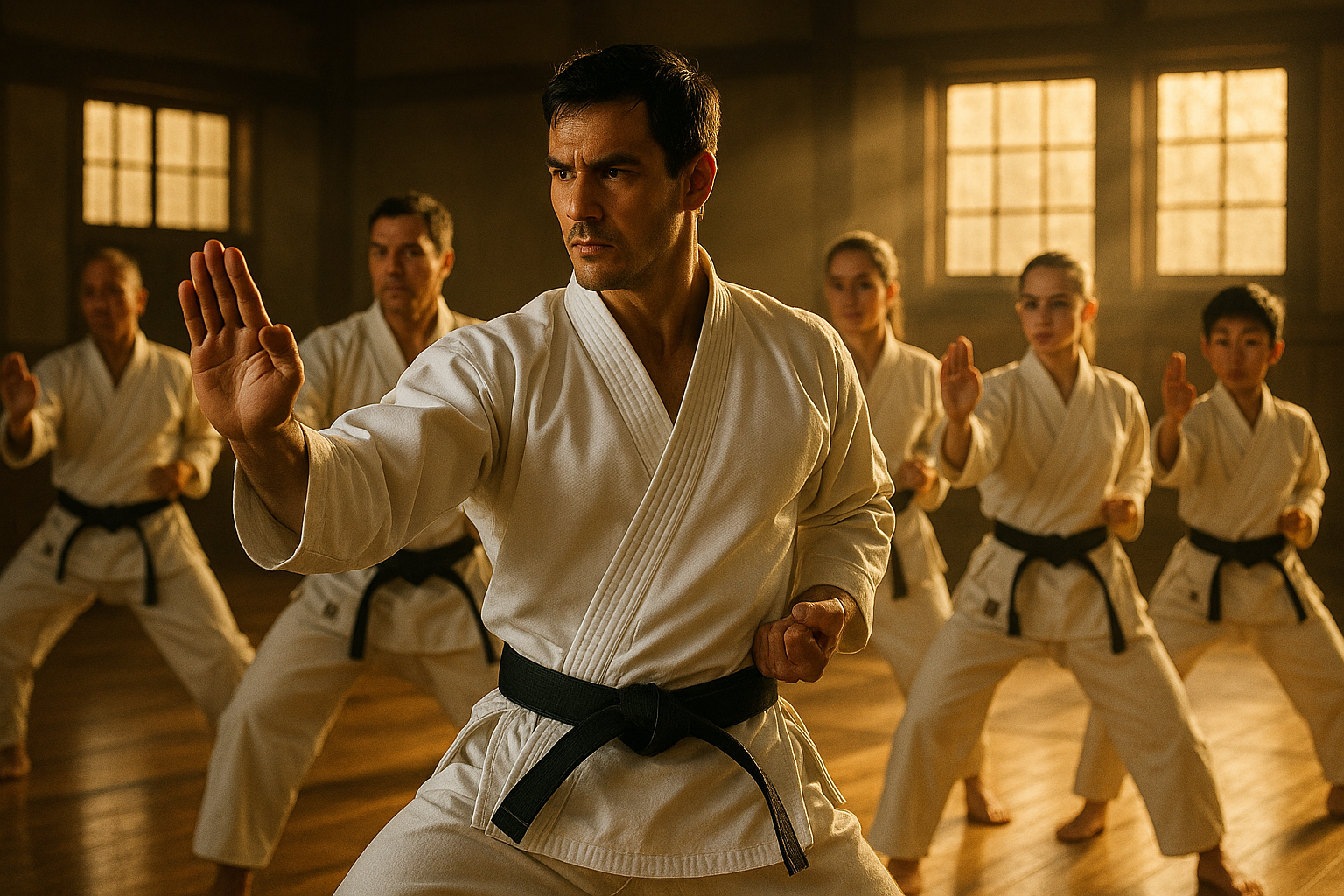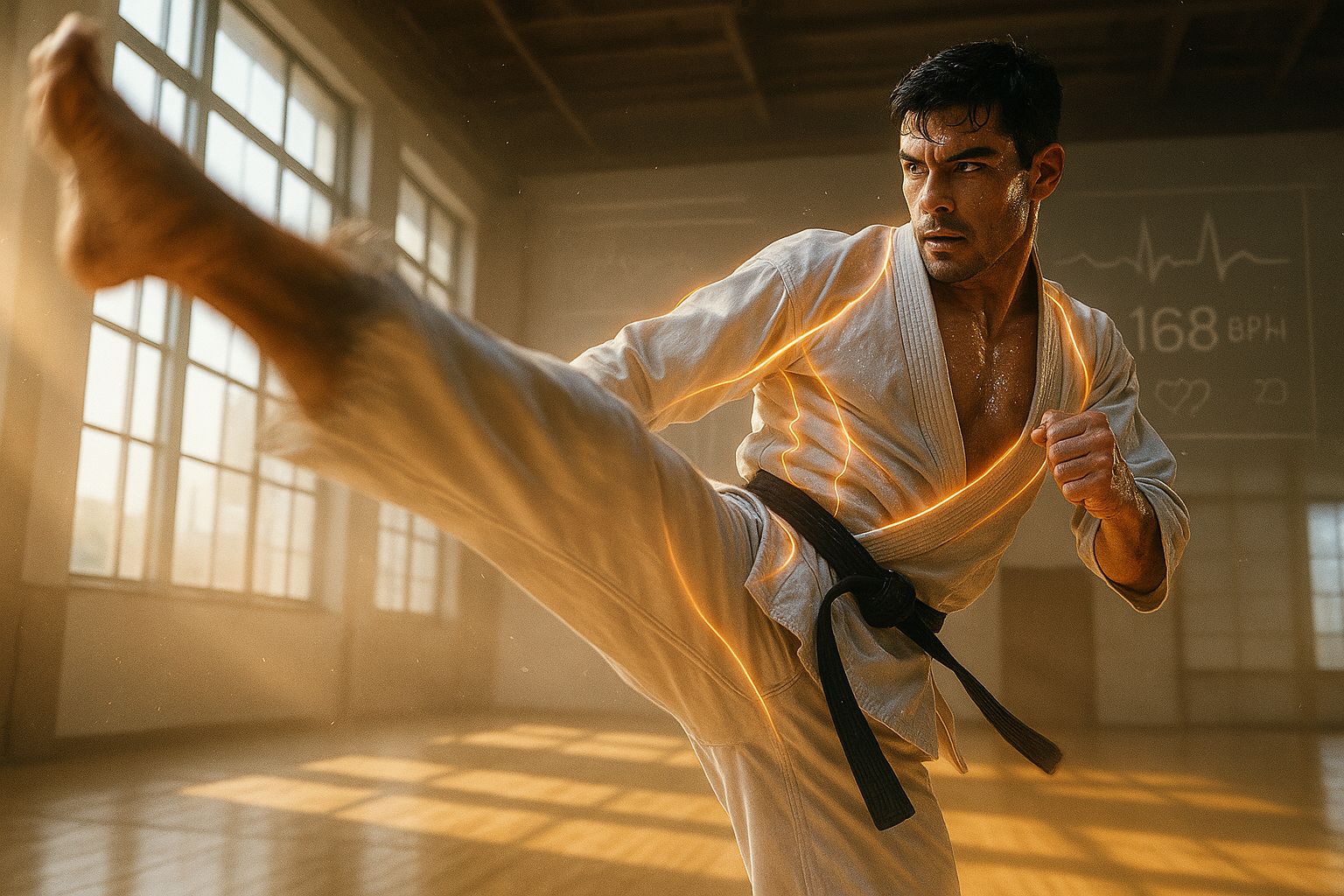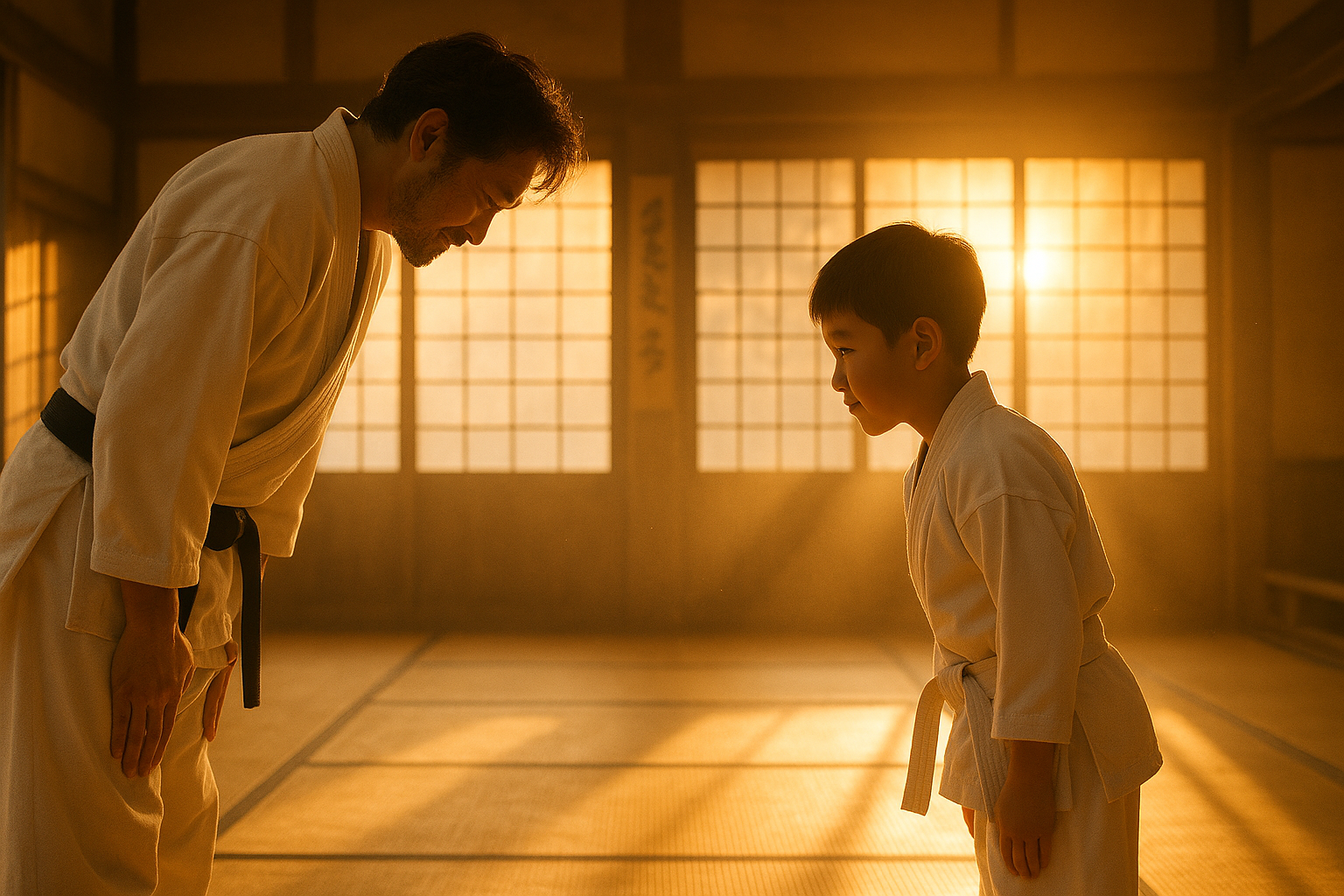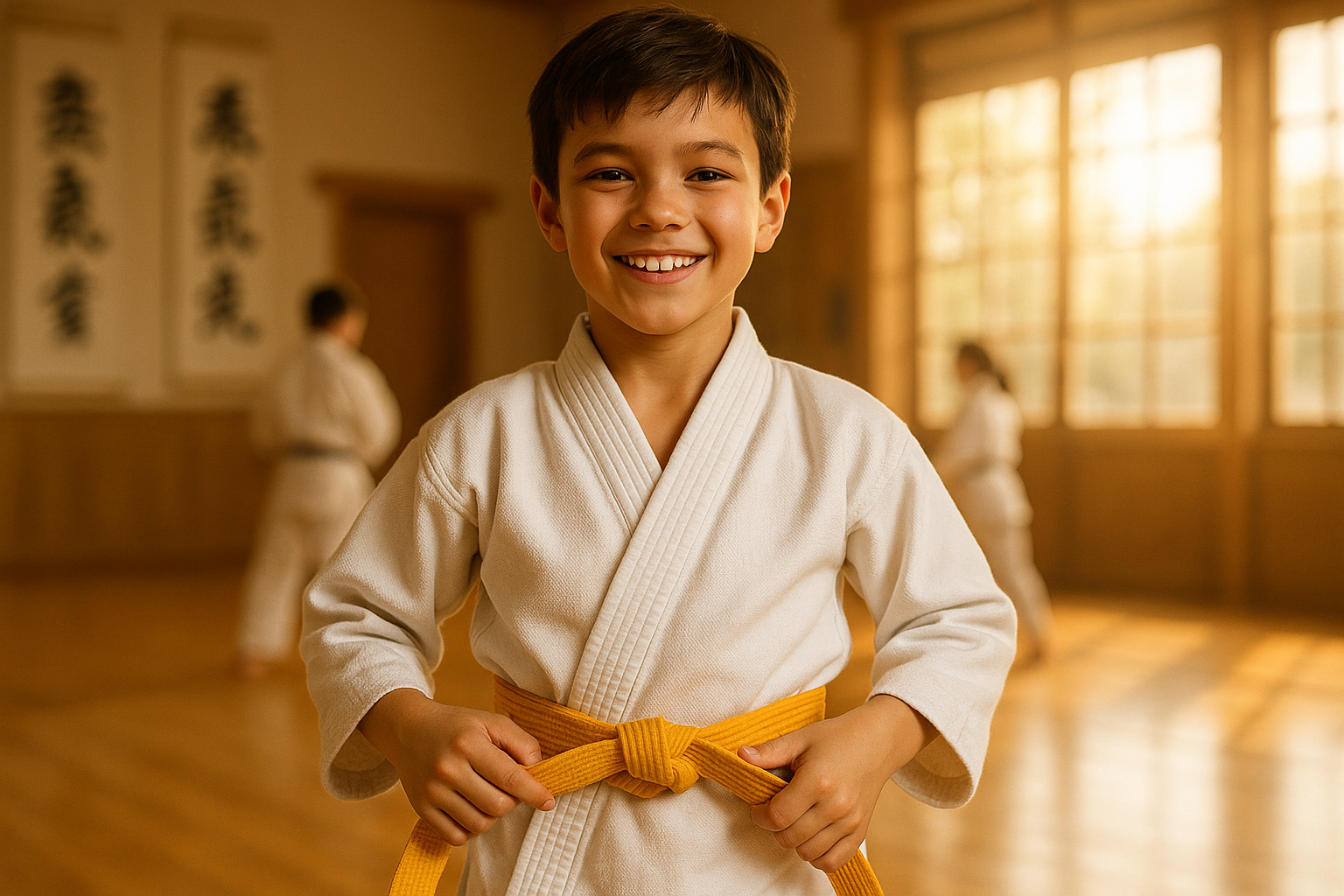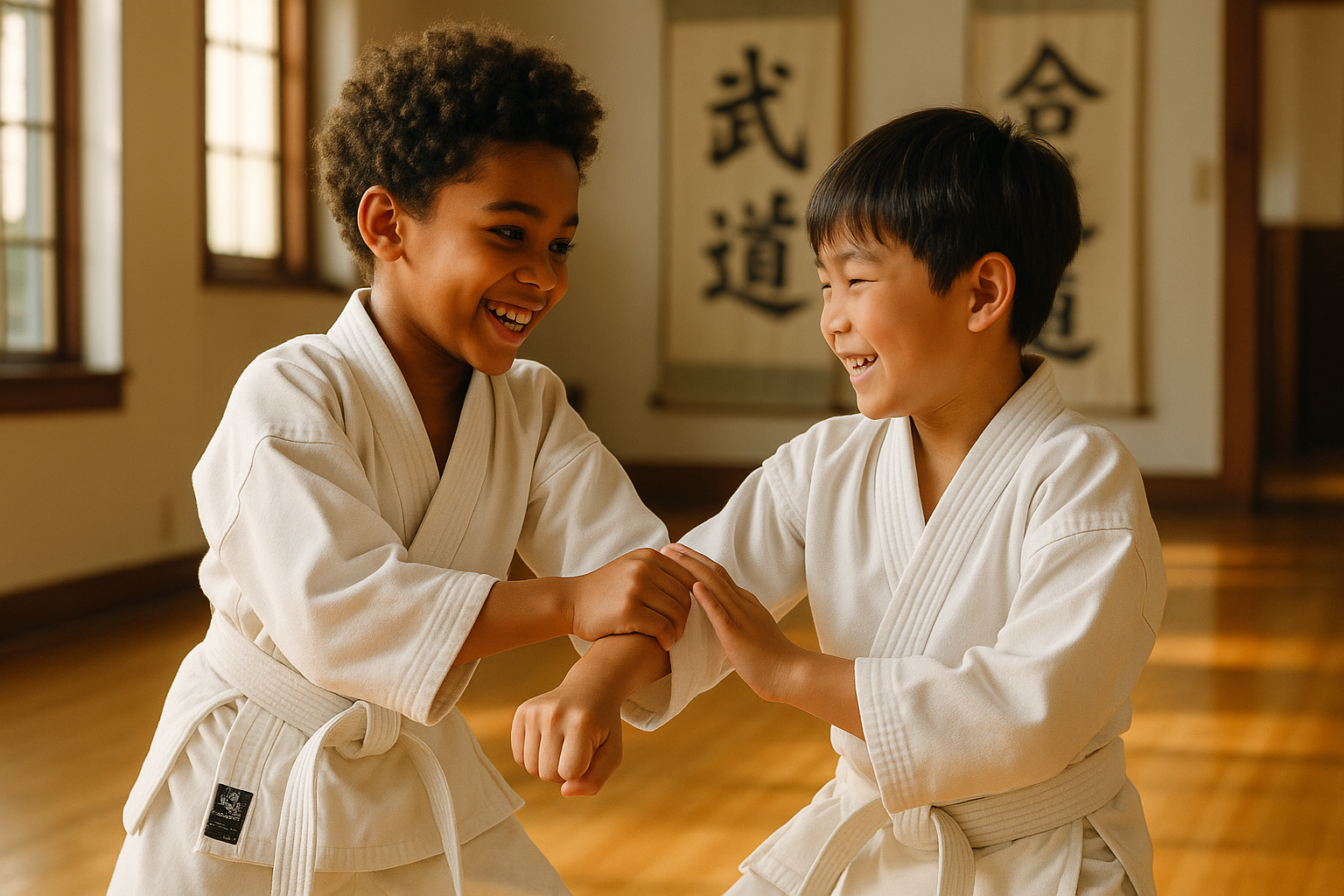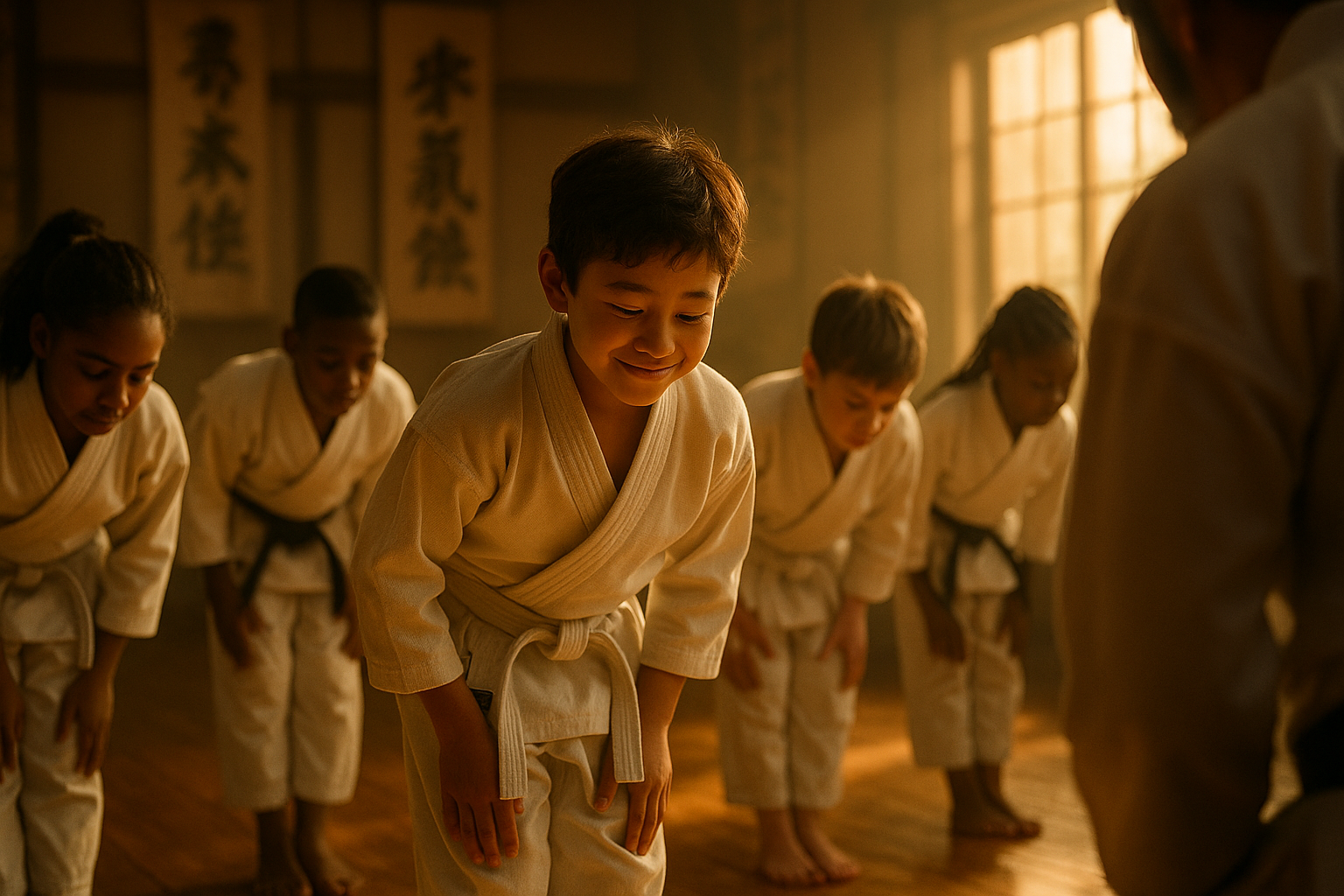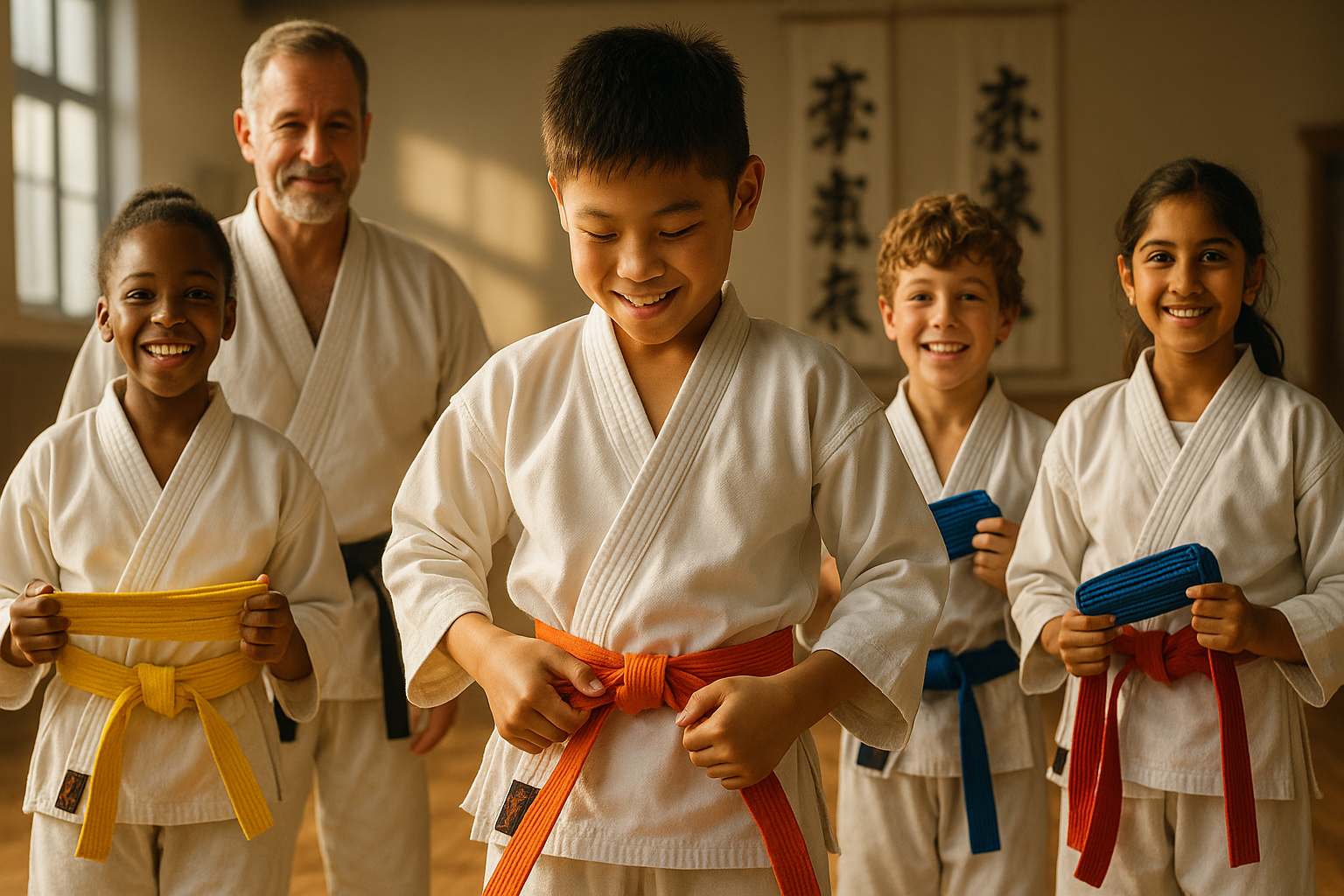The Ultimate Parent's Guide: Why Your Child NEEDS Martial Arts Training (And It's Not What You Think)
Listen up, parents.
I'm about to share something with you that could literally change your child's entire life trajectory. And no, I'm not being dramatic here.
See, while you're busy worrying about screen time, homework, and whether little Johnny is eating enough vegetables, there's something far more critical you might be overlooking...
Your child's ability to protect themselves in a world that's becoming increasingly unpredictable.
Now, before you roll your eyes and think "here comes another fear-mongering article," hear me out. Because what I'm about to tell you isn't about creating paranoid kids who see danger around every corner.
It's about creating confident, aware, disciplined young people who can handle whatever life throws at them.
And the vehicle for this transformation? Martial arts training.
But here's the kicker – the self-defense aspect is just the tip of the iceberg. What really happens when you put your child in a quality martial arts program will blow your mind.
The Confidence Revolution: Why Your Shy Kid Could Become a Leader
Picture this: Your child walks into a room and immediately commands respect. Not through aggression or arrogance, but through quiet confidence and self-assurance.
Sound impossible? It's not.
Here's what happens when children consistently practice martial arts...
Every single technique they master becomes a building block of confidence. Every belt they earn becomes proof that they can achieve difficult goals. Every sparring session becomes evidence that they can handle pressure and come out stronger.
But here's the part most parents don't understand: This confidence doesn't just show up in the dojo. It shows up EVERYWHERE.
In the classroom when they're presenting a project. On the playground when dealing with difficult kids. At home when facing new challenges.
See, confidence isn't something you can just tell a child to have. It has to be earned through experience. And martial arts provides that experience in spades.
When your child knows – not thinks, but KNOWS – they can defend themselves if necessary, something fundamental shifts in their entire demeanor. They walk taller. They speak clearer. They set boundaries naturally.
And bullies? They can smell confidence from a mile away. And they avoid it like the plague.
The Awareness Factor: Creating Kids Who Actually Pay Attention
We live in a distracted world. Kids are walking around with their faces buried in phones, completely oblivious to their surroundings.
This is dangerous. Really dangerous.
But martial arts training does something remarkable – it forces children to become hyper-aware of their environment.
In every class, they're learning to read body language, assess threats, and position themselves strategically. They're developing what we call "situational awareness" – the ability to know what's happening around them at all times.
This isn't paranoia. This is smart living.
Think about it: A child who's aware of their surroundings is less likely to walk into dangerous situations. They notice when someone's following them. They recognize when a situation is escalating before it gets out of hand.
But here's the bonus: This awareness extends to everything in their lives. They become better students because they're more focused. They become better friends because they're more attuned to social dynamics. They become better decision-makers because they're processing more information.
The Physical Transformation: Building Bodies That Can Handle Anything
Let's talk about something every parent worries about: childhood obesity and fitness.
While other kids are getting soft from too much screen time and junk food, martial arts kids are developing real, functional strength.
But this isn't just about looking good or being athletic. This is about building bodies that can respond when it matters most.
A child with good balance, coordination, and physical conditioning has options in dangerous situations. They can run faster. They can react quicker. They can defend themselves more effectively.
Plus, the physical benefits compound over time:
• Improved cardiovascular health
• Better flexibility and mobility
• Stronger bones and muscles
• Enhanced coordination and balance
• Reduced risk of injury in other activities
But here's what really gets me excited: The physical confidence that comes from being in good shape affects everything else. Kids who feel strong physically tend to feel strong mentally and emotionally too.
The Discipline Revolution: Creating Self-Controlled Kids in an Out-of-Control World
Want to know the real secret weapon of martial arts training?
It's not the kicks or punches. It's the discipline.
In a world where instant gratification is the norm, martial arts teaches children the power of delayed gratification, consistent effort, and self-control.
Every class requires them to:
• Follow instructions precisely
• Practice techniques repeatedly until they're perfect
• Control their emotions under pressure
• Respect authority and their training partners
• Push through discomfort and fatigue
This isn't military-style discipline that breaks kids down. This is empowering discipline that builds them up.
And here's the beautiful part: This self-discipline becomes automatic. It transfers to homework habits, chore completion, and behavior at home and school.
Parents constantly tell me their kids become more responsible, more focused, and more mature after starting martial arts. And it's not magic – it's the natural result of consistent discipline training.
The Respect Factor: Building Character in a Character-Starved World
Here's something that might surprise you: Traditional martial arts is obsessed with respect.
Respect for instructors. Respect for training partners. Respect for the art itself. And most importantly, respect for themselves.
This isn't just bowing and saying "yes sir" (though that's part of it). This is about developing genuine appreciation for others and understanding their own worth.
Children learn that true strength comes from helping others, not hurting them. They learn that real power is about self-control, not domination.
And in a world where kids are constantly exposed to disrespect, rudeness, and aggression through media and peer interactions, this respectful mindset becomes a superpower.
These kids become natural leaders because they know how to treat people well. They become trusted friends because they're reliable and considerate. They become successful students because they respect their teachers and the learning process.
The Anti-Bullying Solution That Actually Works
Let's address the elephant in the room: bullying.
Every parent worries about it. Most schools claim to have "zero tolerance" policies. But the reality is, bullying is still rampant, and most anti-bullying programs don't work.
You know what does work? A child who carries themselves with confidence, awareness, and the knowledge that they can defend themselves if necessary.
Bullies are predators. And predators look for easy targets. They look for kids who seem weak, scared, or vulnerable.
A child with martial arts training doesn't fit that profile.
But here's the really cool part: Most martial arts kids never have to use their physical skills to stop bullying. Their confidence and demeanor prevent most bullying situations from ever starting.
And when confrontation is unavoidable? They have options. They can de-escalate verbally. They can remove themselves from the situation. And if absolutely necessary, they can defend themselves effectively.
This isn't about creating aggressive kids who solve problems with violence. This is about creating confident kids who have multiple tools for handling difficult situations.
The Mental Toughness Factor: Preparing Kids for Life's Challenges
Life is tough. Really tough.
Your children are going to face rejection, failure, disappointment, and adversity. That's not pessimistic – that's realistic.
The question is: Will they be prepared for it?
Martial arts training is like a laboratory for developing mental toughness. Every class presents challenges that push children beyond their comfort zones.
They learn to:
• Push through when they want to quit
• Get back up after being knocked down
• Stay calm under pressure
• Focus despite distractions
• Persist through frustration and setbacks
These aren't just martial arts skills – these are life skills.
The child who learns to keep fighting when they're tired in sparring class is the same child who won't give up when algebra gets difficult. The child who learns to stay calm when someone's trying to intimidate them is the same child who won't panic during a job interview.
The Social Skills Bonus: Building Better Relationships
Here's something most people don't realize: Martial arts training is incredibly social.
Children work with partners of different ages, backgrounds, and skill levels. They learn to communicate effectively, cooperate toward common goals, and resolve conflicts peacefully.
They develop empathy by understanding what it feels like to be on both sides of techniques. They learn patience by helping newer students. They develop humility by working with more advanced practitioners.
These social skills are invaluable in every area of life. Kids with good social skills make better friends, perform better in group projects, and develop stronger relationships with family members.
The Academic Connection: How Martial Arts Makes Better Students
Want to improve your child's grades? Put them in martial arts.
I know that sounds crazy, but hear me out.
The focus, discipline, and goal-setting skills developed in martial arts transfer directly to academic performance. Children learn to:
• Concentrate for extended periods
• Break large goals into smaller, manageable steps
• Practice consistently until they achieve mastery
• Handle stress and pressure effectively
• Respect authority figures and follow instructions
Plus, the physical activity improves brain function, memory, and cognitive processing.
Teachers consistently report that their students who practice martial arts are more focused, better behaved, and more successful academically.
The Long-Term Investment: Skills That Last a Lifetime
Here's the thing about martial arts training: The benefits compound over time.
A child who starts training at age 6 and continues through their teenage years doesn't just learn self-defense. They develop a complete framework for success in life.
They learn that consistent effort produces results. They understand that respect and humility are signs of strength, not weakness. They know that they can overcome challenges through persistence and proper technique.
These lessons serve them in college, in careers, in relationships, and in parenting their own children someday.
The Reality Check: What You're Really Buying
When you invest in martial arts training for your child, you're not just paying for kicks and punches.
You're investing in:
• Confidence that can't be shaken
• Awareness that keeps them safe
• Discipline that makes them successful
• Respect that makes them leaders
• Physical fitness that serves them for life
• Mental toughness that helps them overcome any obstacle
• Social skills that build strong relationships
• Character that makes them the kind of person others want to be around
The Bottom Line: Every Child Deserves This Opportunity
Look, I get it. You're busy. Your kids are already overscheduled. Money's tight. There are a million reasons to put this off.
But here's what I want you to understand: The window of opportunity for developing these foundational life skills is limited.
The confidence, discipline, and character traits that martial arts develops are much easier to instill in children than in adults. The habits and mindsets they develop now will shape who they become for the rest of their lives.
Your child deserves every advantage you can give them. They deserve to feel confident and capable. They deserve to know they can handle whatever challenges life throws at them.
Martial arts training isn't just about self-defense – it's about self-development. It's about creating the kind of young person who can thrive in any situation, overcome any obstacle, and contribute positively to the world around them.
The question isn't whether you can afford to invest in martial arts training for your child.
The question is: Can you afford not to?


